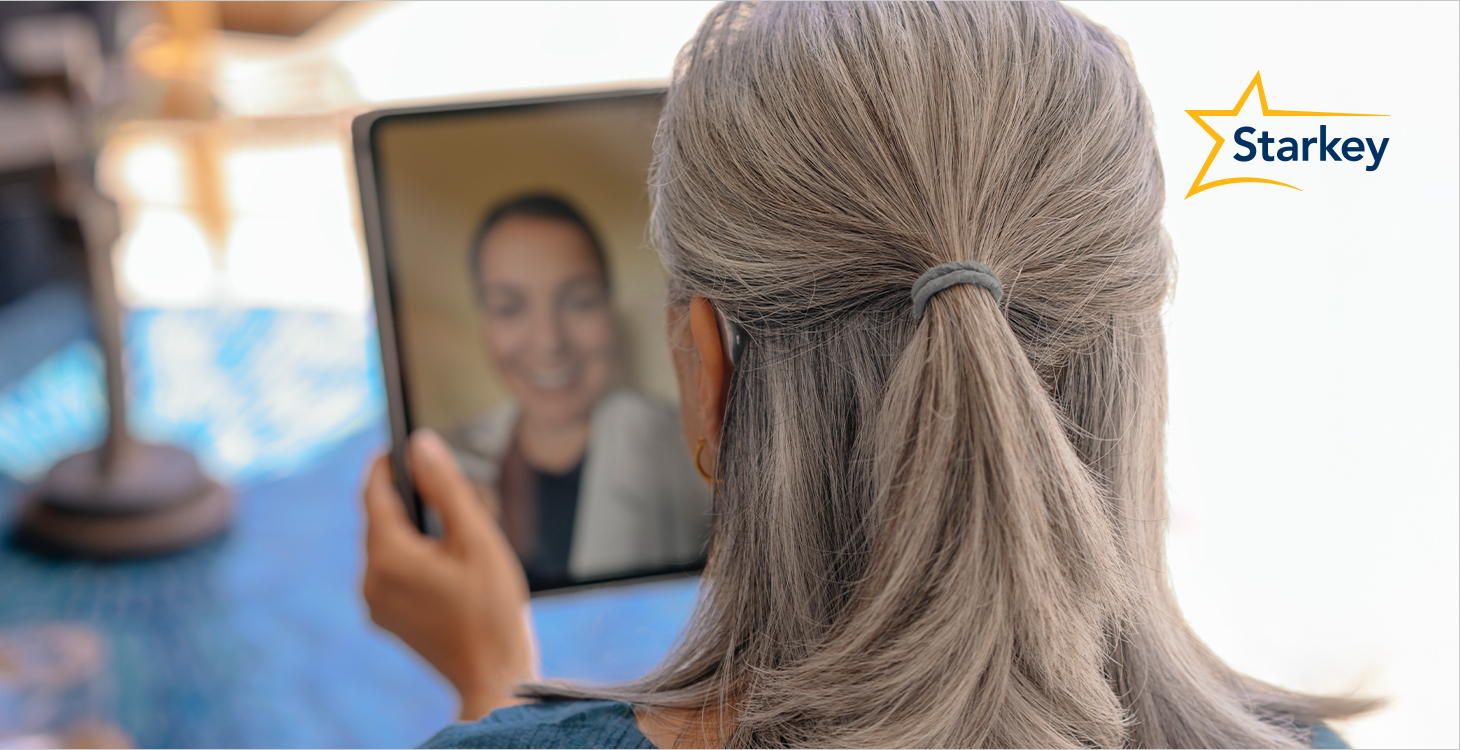Welcome to Healthy Aging Month—a time to celebrate the positives of growing older by taking steps to support our physical and mental well-being into the future. And where to begin isn’t as daunting as we may think.
There is one key decision we can make today that can significantly support our overall wellness as we age—get our hearing tested (regularly) and treat any hearing loss we may have.
Here are 10 top ways better hearing can contribute to healthy aging:

1. Better hearing is linked to a reduced risk of dementia
Did you know that hearing loss was named the single largest modifiable risk factor for dementia by the Lancet Commission on Dementia Prevention, Intervention and Care?
It's true. Research continues to emerge that supports the link between treating hearing loss and a reduced risk of dementia. In fact, a recent study revealed that for older adults at increased risk for cognitive decline, hearing loss intervention slowed down loss of thinking and memory abilities by 48% over 3 years.
2. Better hearing helps us stay social
Hearing our best through hearing aids is our biggest ally for staying connected to others, allowing us to continue participating in conversations (even in background noise), making plans with others, going to restaurants or family gatherings, and so on.
Why is this so important? Because untreated hearing loss is linked to a higher risk of social isolation—which is associated with not only cognitive decline and depression, but also many physical health conditions like high blood pressure, elevated stress hormones, weakened immune systems, and beyond.

3. Better hearing supports our brain health
Improved hearing can help us think better, learn better, remember better, and reason better than before, according to research. These benefits are important to helping us continue to make plans, learn new skills, manage our emotions, and solve problems, as we age.
In contrast, leaving hearing loss untreated means the brain must spend more energy than normal trying to process what it’s hearing—leaving it less energy to spend on thinking and memory (which can also contribute to dementia), and beyond.
4. Better hearing helps us maintain physical activities
It’s no secret that physical activity—from exercising to gardening—can greatly benefit us as we age. It not only can help prevent or delay potential health problems but also assist in maintaining muscle so we can continue our activities autonomously.
Better hearing can support our physical health by improving our spatial awareness and balance, helping us to stay safe while we’re active. In fact, research has shown that treating hearing loss can reduce our risk of falling by 50%.
5. Better hearing helps us stay alert and independent longer
As it stands, untreated hearing loss increases our chances of accidental injury, according to research—but on the bright side, maintaining our best hearing can help us preserve our safety, confidence, and independence into the future.
Think about it: When we can hear, we gain greater awareness over our surroundings, plus the improved ability to distinguish and react to audible cues (like car horns and smoke alarms) that warn of safety hazards.
And what better way to uphold our confidence as we age than by reducing our reliance on others to "translate" or clarify what we hear? All thanks to hearing intervention.

6. Better hearing helps us maintain communication
Let’s face it—communication is integral to probably every aspect of our lives: our relationships, our workplace, our social-emotional wellness, and so on. Better hearing helps us improve and maintain our ability to converse with others, allowing us to stay connected to our world and participate in every facet of life.
Whether it’s asking for what we need from the grocer, sharing a recipe idea over the phone, or resolving a disagreement with a loved one, improving our communication through hearing aids helps us continue to engage with others, express ourselves, and function in daily life.
7. Better hearing is a great stress-fighter
Treating hearing loss can play a tremendous role in reducing stress, which is particularly important given the detrimental effects it can have on our body and health.
First, wearing hearing aids can help us to engage with life and pay attention to others—two factors that are key to relieving stress. Besides helping to reduce social anxiety and isolation, hearing technology can also assist in relieving tinnitus, a common stress-causer.
And if those benefits weren’t enough, the perk of staying physically active through better hearing (see #4) can assist us in achieving that all-important upbeat feeling and redirection from problems through exercise.
8. Better hearing helps us stay connected to little loved ones
Whether they’re grandchildren, nieces, nephews, friends, or neighbors—our relationships with our favorite little ones are as important as they are joyful. And maintaining these special connections as we age is definitely possible through hearing intervention.
Here’s how: Wearing hearing aids can help treat high-frequency hearing loss, a condition that makes it difficult to hear high-pitched voices like children’s (and women’s). The better we can hear, the easier it is to maintain our communication—and ultimately, our bonds—with the kiddos we care about.

9. Better hearing can help us live longer
How’s this for an incentive to treat your hearing loss? Research has shown that wearing hearing aids regularly can lengthen life expectancy by nearly 25%. Hear better, live longer—enough said.
10. Better hearing gives us the joy of never missing a moment
Let’s hear it for joy of sound: It makes the big moments feel bigger—from a nephew’s first words to their name being called from the graduation stage. It gives us the gift of simply being in the here and now—even in those “smaller” instances of birds chirping, friends laughing, or waves lapping around us.
With better hearing, we stay tuned in to all the wonders of living—every moment of every day.
As you can see, choosing to treat your hearing loss is choosing health—and happiness—for your future years. Make an appointment to have your hearing evaluated by a licensed hearing care professional today.
